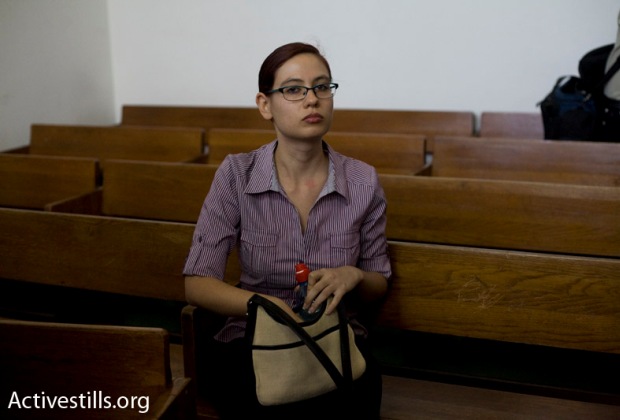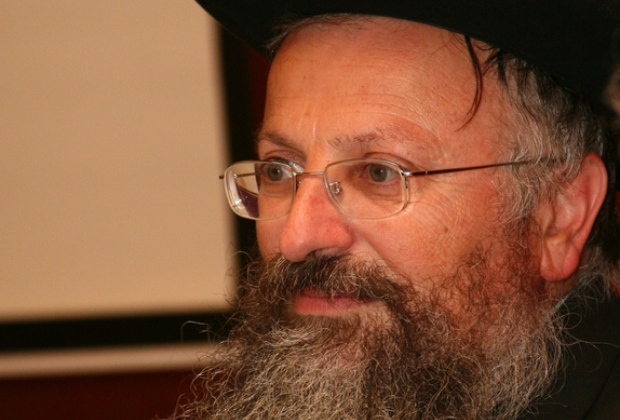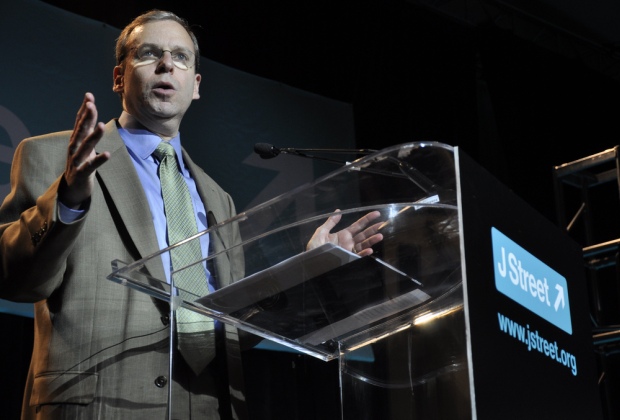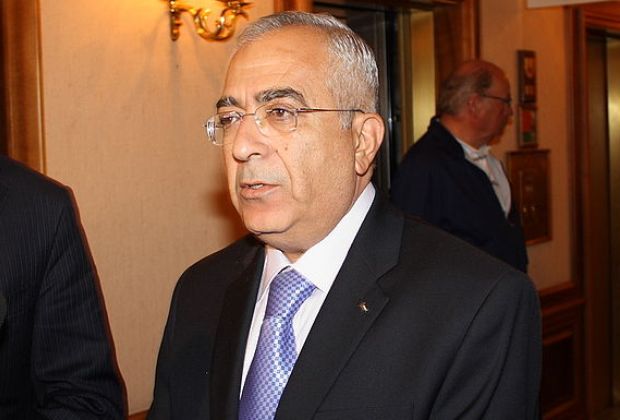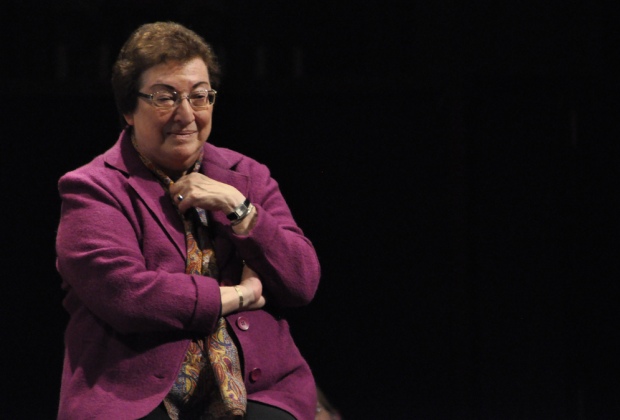The shortlist of 972’s people of the year 2010, chosen by the site’s bloggers
Anat Kamm, former IDF soldier accused of leaking top secret documents to Haaretz reporter Uri Blau
One day this March, my girlfriend went for a routine job interview. When she returned she had a story to tell: “You’ll never believe how come that job is vacant,” she said, “The girl who used to do it is under secret house arrest for exposing classified military documents.”
It was precisely like this, by way of rumor, that the story of Anat Kamm spread. Rumor was the only possible media, since her arrest was place under a strict gag order. Kamm was arrested in December of 2009. She was accused for copying 2,000 documents from an IDF computer, while serving her compulsory military service, and handing them over to Uri Blau, a reporter for Haaretz newspaper.
According to several of the documents, Israeli military officials ordered assassinations of Palestinians in defiance of Israeli court restrictions. Blau’s story was approved by the IDF censor, as is every army related news piece published in Israel. It appeared in print and attracted little attention from the Israeli public. An investigation as to its source began simultaneously.
At the time of her arrest, Ms. Kamm was 23 years old. She worked for an Israeli web portal, covering the local media world. It was only thanks to her connections in the media and the perisitence of international and local bloggers in spreading the word that her story became known. When the gag order was removed, Kamm was instantly labeled a traitor by the mass media. The initial accusations leveled against her in court include “severe espionage,” which carries a possible sentence of life in prison.
Kamm’s trial has not yet begun. She has been under house arrest for over a year at this point. During this time, she has become a symbol in Israel, mostly in a negative way. Overwhelmingly, the media and public have portrayed her acts in the most negative light possible, while ignoring completely the fact that she exposed war crimes.
In Israel of 2010, the state is immune, and the individual who challenges it and blows a whistle on it commits a self destructive act. There is no doubt that what Kamm did was illegal, in the same way that what other whistle blowers in history did, as well as the sources of every Israeli military reporter since the founding of the state. Maybe it’s time to question the rationale behind our laws and what they are intended to protect.
The perpetrators of the crimes exposed by Kamm walk free. They hold on to their jobs, they feel completely entitled to kill despite clear rulings to the contrary. She herself is still in a Tel-Aviv apartment, awaiting a trial in which Israel’s conscience and common sense are the true defendants. [Yuval Ben-Ami]
Shmuel Eliyahu, Chief Rabbi of Safed
Not a long time ago, Shmuel Eliyahu – the chief rabbi of the holy city of Safed – was an acquired taste. He was known mostly among connoisseurs of Jewish racism, who nodded to each other, mumbling that this young one has a future ahead of him.
And he certainly did. Five years ago he played the usual game of chicken with the prosecution, publishing a psak – Halachic ruling – forbidding Jews to rent apartments to gentiles. He won the game – the prosecutors always assume the role of chicken, as he knew – but it fizzled. The time was not right.
Now it is, and Eliyahu knows it. When, two months ago, he republished his psak, it spread like wildfire. Over 300 Orthodox rabbis have signed a support letter, and this week we saw a similar “rabbis’ wives letter”, warning Jewish girls of the ominous, swarthy Arab trying to seduce them and then, once the charming mask slips, carry them into lives of servitude in one of “the villages.” A full 44 percent of Israelis say they support Eliyahu’s policy. One suspects that if one were to ask the others why they object to it, they would respond that they just want the bad publicity.
Eliyahu has forged an awesome Orthodox coalition: he has Shas rabbis supporting him, much of Chabad behind him (he’s very close to them), and his penetration of the ranks of the national-religious rabbinate is deep enough to draw to him even some of the Tzohar rabbis, who often present themselves as a liberal alternative to the religious establishment. If he were to try to monetize this support into political coin, he could have a strong party behind him – and bring unreconstructed racists into the Knesset for the first time since the election of Meir Kahane and his Kach party, in the 1980s.
But one suspects that’s not what Eliyahu’s after; not the leading of a party, but rather serving as its spiritual leader. In other words, Eliyahu wants to imitate Ovadiah Yosef’s position as spiritual leader Shas.
In 2010, Eliyahu has made some major steps on the way to his goal. While doing so, he legitimized racism in Israel as never before. [Yossi Gurvitz]
Jeremy Ben-Ami, Executive Director of J Street
Actually, Jeremy Ben Ami and J Street, the pro-peace, pro-Israel lobby he started, didn’t re-define what it means to be pro-Israel to me at all. But they are redefining it for America. And maybe, just maybe, they can help this happen in Israel too.
It is singularly weird that the term “pro-Israel” became synonymous over the last few decades with pro-occupation, security worship as a distraction from peace, and democratic double speak. Why double speak? Because nobody who perpetuates the occupation can really believe in Israel’s democracy. And by perpetuate, I mean those who are not actively pursuing a long-term just resolution to the conflict. So failure to oppose the occupation is anti-Israel.
But those were tough things to say. I don’t think I realized how tough they were until J Street’s first conference in October 2009. I did find the rah-rah Israel pseudo-glorification among American Jewry while I was growing up instinctively alienating, and instinctively, I didn’t feel I belonged. When J Street gathered all the people like me who had been literally hiding their ideas in fear for decades – because, unlike me, they stayed in the US – the emotions came pouring out. I’ll never forget the woman who stood up and told how her one and only critique of Israeli policy was met with vicious threats against her job, her social position and her future career. I thought she might cry to confront such support and solidarity – I know I almost did.
Loving something means knowing it intimately, flaws included. I don’t believe the people who brutally stifle critique of Israel really know it. Their professed love rings hollow to me, a mockery. The absurd charge that J Street demonizes Israel makes the detractors not only irrelevant, but painfully ignorant.
Jeremy Ben Ami’s life is devoted to Israel. It’s not easy to turn your life upside down and give up a wunderkind career as an attorney, a top-level political policy adviser, or a PR guru in return for a rain of slander. It takes something we don’t see too often: leadership.
J Street has changed the political dynamics of America’s role in Israel and started a process in motion that cannot be turned back. No longer will any American President be restrained by a solid wall of Jewish resistance for trying to move Israel in the direction it must ultimately go. No longer will Israelis believe that American Jewry blindly supports Israel’s most self-destructive policies. And thousands of American Jews can now re-engage with Israel in a way that is meaningful to them – or perhaps engage for the first time. [Dahlia Scheindlin]

Avigdor Lieberman, Israel’s Foreign Minister
2010 has seen Avigdor Lieberman complete his metamorphosis into the ultimate Israeli politician: one who has been in the heart of the establishment for some 15 years, who holds one of the highest offices in the land, and yet manages to present himself as an opposition figure. Somehow, he manages to hold to power, yet avoid accountability.
As far as Lieberman is concerned, the campaign never ends – in fact, it never stops. He is always looking for the next election. Everything he does – be it an appearance at the plenum of the UN, or meeting with Israeli ambassadors, is gauged according to the way it presents Lieberman to his voters.
The consummate cynic, Lieberman has no problem destroying the international standing of Israel – which, strangely, is the reverse of the original purpose of the Foreign Ministry – as long as he gains power from the wreckage. He plays to the fears of Israelis, massaging them, assuring them everyone hates them and therefore they are always justified in acting like a mad country.
So far this seems to be working. The polls say Lieberman will increase his power in the next elections – despite failing abjectly at his office, and despite failing to enact even a small bit of his platform. As such, Lieberman symbolizes as no one else can the typical Israeli bully: arrogant, disconnected from reality, always looking for a fight, sneering at civility and sense.
And if the country falls down on his head, due to his policies – well, he’ll always have Minsk, as well as a few million suspiciously-acquired dollars. [Yossi Gurvitz]
Salam Fayyad, Prime Minister of the Palestinian Authority
Prime Minister Salam Fayyad, appointed in 2007 after running in Palestinian elections on an independent ticket, is a Western-educated economist admired for being non-corrupt and for his 2009 plan (the first of its kind) to build Palestinian state infrastructure that lays the groundwork for a democratic state in the West Bank and Gaza, with East Jerusalem as its capital.
Fayyad was born near Tul Karem and currently resides in East Jerusalem. He earned a PhD in economics from the University of Texas and has worked for the World Bank and International Monetary Fund. He is praised in the US and even by many in Israel for being a moderate who is responsible for cracking down on Hamas and reining in violence in the West Bank.
To date he has completed about 1,500 projects that include the building of schools, paving of roads and construction of housing projects. One of his most important and impressive acts took place recently, when Fayyad tried to host a celebratory inauguration of a school built in the East Jerusalem neighborhood of Dahyat-al-Salam, which was thwarted by Israel.
This neighborhood is located within the municipal borders of Jerusalem and is thus under Israeli jurisdiction, but it is blocked out by the wall, such that it suffers even worse neglect than the Palestinian neighborhoods of East Jerusalem located on the Israeli side of the wall. Since the Oslo Accords, the Palestinian Authority is effectively barred from acting in East Jerusalem, such that Fayyad’s move was a direct challenge to Israel’s double standard of prohibiting the PA from providing basic services while it continues to witthold such services, which it is obligated by law to provide.
Some have criticized Fayyad’s willingness to act within the context of Israel’s ongoing occupation of the West Bank, and to this he has responded with a pragmatic rationale. In his own words:
Much is wrong with the context in which we’re operating. But if we can reduce our problems to just the continuation of the occupation, then we are much better positioned to end it. It’s the power of ideas translated into facts on the ground — taking Palestinian statehood from abstract concept to reality.
[Mairav Zonszein]
Naomi Chazan, president of the New Israel Fund
If 2010 was the year that the campaign against human rights and peace activists peaked, the epitome of that trend without a doubt was the attack on Naomi Chazan, former Meretz MK and head of the New Israel Fund. In January 2010, the extreme right wing movement Im Tirzu started a smear campaign against Chazan and the NIF, the likes of which Israel had never seen, claiming that the organization was responsible for the Goldstone Report, which harshly criticized Israel’s military invasion of Gaza in the winter of 2008-9.
Newspapers, billboards and other media were filled with ads showing Chazan in a caricature, her nose particularly long and a horn coming out of her head. The resemblance to anti-Semitic cartoons in Europe was unmistakable.
But Chazan was not intimidated and calmly showed the many flaws in the Im Tirzu report’s methodology. Throughout the year she, and the NIF, stood up against the constant attacks against NGOs in Israel. In the recent human rights march in Tel Aviv, Chazan took the stage and boldly claimed that “We will not go silent until Israel is a true democracy that respects others and takes care of the weak. We will not be silent as the racism and violence in Israel is on the rise.”
Indeed, we need leaders like Chazan, who refuse to be silent. [Ami Kaufman]
Binyamin Netanyahu, Israel’s Prime Minister
Binyamin Netanyahu is not only one of the people who made 2010 what it was, but also one of the best prime ministers progressives ever had. To wit: The man has done more damage to the self destructive myth of Israeli exceptionalism than any leftist leader or thinker to date.
For years, progressives in the US tried to wean their country of its belief that Israel can do no wrong, and progressives in the rest of the world tried to persuade their leaders the US was too infatuated with its hysterical little ally ever to apply any of the pressure necessary to achieve progress on any front in the Middle East.
And lo and behold, Netanyahu accomplished both, sending such stalwart friends of Israel as Jeffrey Goldberg, Christopher Hitchens, Peter Beinart and David Remnick howling up the wall, and getting American mainstream media to start asking questions about the benefits of this special relationship. Meanwhile, Latin America and the European Union tired of snapping their fingers before the eyes of a bedazzled United States, shrugged, and began weaving their own Middle East policy. Even the legitimization of the occupation through the premature thaw with the United Arab Emirates has been brought to a grinding halt.
And last but not least – while the lives of Gaza residents and flotilla activists lost under Netanyahu’s government are not to be ignored or dismissed, in terms of real damage, the man’s government killed less people than any government since Rabin. He appears positively humane compared to the reeking pile of corpses from Gaza and Lebanon dragged by his “moderate” opponent Tzipi Livni on her mantles of state, and the equally impressive pools of blood waded in by other “left” candidates – ie, former defense ministers Ehud Barak, Dan Halutz and Shaul Mofaz. He also built fewer settlements than any other Israeli prime minister. We are paying a price inside Israel – but Netanyahu may well be remembered as a calm interlude between hypocritical goons and outright totalitarianists. [Dimi Reider]
Related story:
+972 Magazine’s Person of the Year 2010: Abdullah Abu Rahmah

